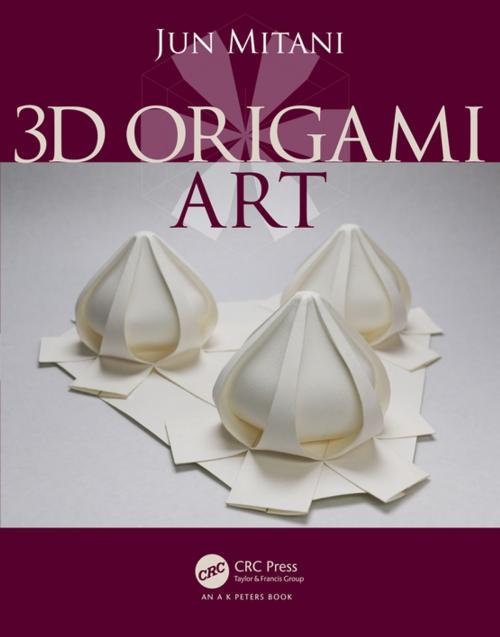| Author: | Jun Mitani | ISBN: | 9781315350400 |
| Publisher: | CRC Press | Publication: | December 19, 2017 |
| Imprint: | A K Peters/CRC Press | Language: | English |
| Author: | Jun Mitani |
| ISBN: | 9781315350400 |
| Publisher: | CRC Press |
| Publication: | December 19, 2017 |
| Imprint: | A K Peters/CRC Press |
| Language: | English |
Easily Create Origami with Curved Folds and Surfaces
Origami—making shapes only through folding—reveals a fascinating area of geometry woven with a variety of representations. The world of origami has progressed dramatically since the advent of computer programs to perform the necessary computations for origami design.
3D Origami Art presents the design methods underlying 3D creations derived from computation. It includes numerous photos and design drawings called crease patterns, which are available for download on the author’s website. Through the book’s clear figures and descriptions, readers can easily create geometric 3D structures out of a set of lines and curves drawn on a 2D plane.
The author uses various shapes of sheets such as rectangles and regular polygons, instead of square paper, to create the origami. Many of the origami creations have a 3D structure composed of curved surfaces, and some of them have complicated forms. However, the background theory underlying all the creations is very simple. The author shows how different origami forms are designed from a common theory.
Easily Create Origami with Curved Folds and Surfaces
Origami—making shapes only through folding—reveals a fascinating area of geometry woven with a variety of representations. The world of origami has progressed dramatically since the advent of computer programs to perform the necessary computations for origami design.
3D Origami Art presents the design methods underlying 3D creations derived from computation. It includes numerous photos and design drawings called crease patterns, which are available for download on the author’s website. Through the book’s clear figures and descriptions, readers can easily create geometric 3D structures out of a set of lines and curves drawn on a 2D plane.
The author uses various shapes of sheets such as rectangles and regular polygons, instead of square paper, to create the origami. Many of the origami creations have a 3D structure composed of curved surfaces, and some of them have complicated forms. However, the background theory underlying all the creations is very simple. The author shows how different origami forms are designed from a common theory.















